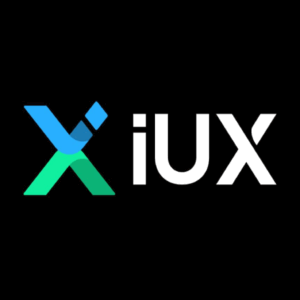
In the world of cryptocurrency, selecting the right trading platform is crucial for both beginners and experienced investors. This article explores the top contenders for the best cryptocurrency trading platforms, considering factors such as fees, features, and user experience.
The best cryptocurrency trading platform varies based on individual needs. Consider factors like fees, security, and features. Popular options include Kraken for low fees and Coinbase for beginners.
Key Takeaways
- BDSwiss, Vantage, and Coinbase are some of the top trading platforms for cryptocurrency in 2025.
- These platforms offer access to a wide range of cryptocurrencies and provide user-friendly interfaces.
- Factors to consider when choosing a trading platform include the range of supported cryptocurrencies, security measures, user-friendliness, and fees.
- Traders should evaluate their options carefully and choose the platform that aligns with their trading goals and preferences.
- It is important to stay updated with the latest trends and developments in the cryptocurrency market to make informed trading decisions.
What is the Best Trading Platform for Cryptocurrency
When it comes to trading cryptocurrency, having the right platform is crucial. With the rapid growth of the cryptocurrency market, the demand for reliable and secure trading platforms is on the rise. In this article, we will explore some of the best trading platforms for cryptocurrency in 2025. Whether you are a beginner or an experienced trader, finding the platform that suits your needs is essential to achieve success in the world of cryptocurrency trading.
Cryptocurrency exchanges function as central platforms where users can trade various digital assets. These platforms, much like traditional brokerages, facilitate the buying and selling of cryptocurrencies like Bitcoin, Ethereum, and Dogecoin. Additionally, they offer advanced features such as staking, lending, and custody services.
Which Cryptocurrency Trading Platform is for You
It’s vital in cryptocurrency trading to select the right platform. This is a critical decision that can significantly impact your investment journey. To make an informed choice, investors must carefully evaluate various factors that distinguish one trading platform from another.
Fee Structure:
The fee structure of a trading platform plays a pivotal role in determining its attractiveness to investors. Different platforms employ varying fee models, including transaction fees, withdrawal fees, and deposit fees. For instance, Kraken’s Kraken Pro stands out for its tiered fee structure, allowing high-volume traders to benefit from reduced fees. On the other hand, Coinbase, while user-friendly, has relatively higher trading fees, ranging from 0% to 0.60%.
Cryptocurrency Selection:
The range of cryptocurrencies supported by a trading platform is a crucial factor, especially for investors looking to diversify their portfolio. Kraken, with over 200 supported cryptocurrencies, provides a diverse range of options for traders. Coinbase, with support for over 300 cryptocurrencies, caters to both beginners and advanced investors seeking a broad spectrum of digital assets.
Advanced Trading Options:
For experienced traders, the availability of advanced trading features is paramount. Platforms like Kraken Pro offer highly customisable chart analysis tools, detailed order book insights, and support for various order types. This allows traders to execute sophisticated strategies and engage in margin and futures trading.
Customer Service Offerings:
Reliable customer support is crucial for a smooth trading experience. While platforms like Kraken are known for their professional-grade services, Coinbase has faced criticism for its customer support. Feedback from users on platforms like Trustpilot can provide insights into the responsiveness and effectiveness of a platform’s customer service.
Security Measures:
The security of funds and personal information is a top priority in the cryptocurrency space. Coinbase, for example, insures digital funds and stores U.S. dollar balances in FDIC-insured bank accounts to enhance user security. Evaluating a platform’s security measures, such as two-factor authentication and cold storage usage, is vital for protecting your investments.
Regulatory Compliance:
Investors should consider whether a trading platform complies with financial regulations in their region. BYDFi, formerly BitYard, has positioned itself as a Singapore-based exchange with licenses in Australia, Singapore, and the U.S., ensuring regulatory adherence and providing a secure trading environment.
Global Accessibility:
The accessibility of a trading platform in different countries is a key consideration for global investors. Platforms like BYDFi operate in more than 150 countries, offering international users the opportunity to participate in cryptocurrency trading. This global reach enhances liquidity and market opportunities.
Funding Options:
Examining the available funding options is essential for seamless transactions. Kraken, for instance, primarily supports wire transfers for funding accounts, while Coinbase offers a wider range, including wire transfers and ACH transfers. Limited funding options can be a drawback for users looking for diverse payment methods.
Usability and Interface:
The user interface and overall usability of a trading platform are crucial, especially for beginners. Coinbase’s user-friendly platform, resembling an online banking app, has made it a go-to choice for first-time crypto buyers. However, advanced traders may prioritise platforms like Kraken Pro, known for its customisation and analytical tools.
Conclusion:
By carefully considering these factors, investors can navigate the complex landscape of cryptocurrency trading platforms and align their choices with their specific needs and preferences. Whether prioritising low fees, a diverse range of cryptocurrencies, or advanced trading features, a thoughtful evaluation of these factors ensures a rewarding and secure trading experience.
Popular Platforms for Cryptocurrency Trading in 2025
Kraken: A Professional’s Choice
- Established Reputation: Founded in 2011, Kraken stands out as one of the most reputable exchanges globally.
- Low Fees on Kraken Pro: Offering a professional-grade platform, Kraken Pro boasts low fees, making it an ideal choice for experienced traders.
- Wide Cryptocurrency Support: With over 200 supported cryptocurrencies, Kraken provides a diverse range for investors.
- Liquidity and Customisation: Highly liquid and customisable, Kraken Pro’s advanced features include detailed chart analysis tools and 13 order types.
- Cons: Limited availability in certain U.S. states, and funding options primarily through wire transfers.
Coinbase: Ideal for Beginners
- User-Friendly Experience: Coinbase, founded in 2012, is renowned for its easy-to-use platform, making it perfect for beginners.
- Secure Storage: Insuring digital funds and storing U.S. dollar balances in FDIC-insured bank accounts enhance security.
- Wide Asset Support: With support for over 300 cryptocurrencies, Coinbase caters to both novice and advanced investors.
- Cons: Relatively high trading fees, mixed customer feedback, and ongoing regulatory challenges.
BYDFi: Emerging Contender
- Global Reach: Launched in 2019, BYDFi operates in more than 150 countries, providing extensive accessibility.
- Regulatory Compliance: Complying with financial regulations in Australia, Singapore, and the U.S., BYDFi ensures a secure trading environment.
- Pros: Low trading fees, international platform, and support for over 50 fiat currencies.
- Cons: Limited advanced trading features, absence of staking and lending options, and lack of funds insurance.
Interactive Brokers: Tailored for Active Traders
- Extensive Offering: With IBKR Lite for casual investors and IBKR Pro for advanced traders, Interactive Brokers covers a broad spectrum.
- Low Costs: Offering commission-free trades and low margin rates, IBKR provides cost-effective options.
- Global Accessibility: Suitable for day traders, margin accounts, options trading, and international investors.
- Cons: Complex website navigation, lack of IPO and OTC access for certain account types.
Cryptocurrency Exchanges: Centralised vs. Decentralised
Cryptocurrency exchanges come in two predominant forms: centralised exchanges (CEX) and decentralised exchanges (DEX). Understanding the fundamental distinctions between these models is essential for investors navigating the dynamic landscape of digital assets.
Centralised Exchanges (CEX)
Centralised exchanges operate under the management of a single corporate authority, facilitating the buying and selling of cryptocurrencies. These platforms, such as Kraken and Coinbase, offer user-friendly interfaces, easy fiat-to-crypto conversions, and high liquidity. However, centralisation introduces concerns, notably related to security and user privacy.
Security Concerns:
CEXs store user funds on the platform, exposing them to potential hacking threats. Despite efforts to enhance security, the risk remains, as demonstrated by historical exchange breaches. Notably, Coinbase has faced security-related challenges, contributing to mixed user feedback.
User Identity Verification:
To comply with Know Your Customer (KYC) regulations, centralised exchanges require users to disclose their identities. This process aligns with traditional financial practices but goes against the decentralised ethos of cryptocurrency.
Decentralised Exchanges (DEX):
Decentralised exchanges distribute the responsibility for facilitating and verifying crypto trades across a network of participants. Unlike CEXs, DEXs aim to uphold the principles of decentralisation, transparency, and user autonomy. However, this model comes with its own set of challenges, including user-friendliness and limited currency conversion options.
Security Advantages:
DEXs reduce the risk of large-scale hacks by distributing verification powers among network participants. This decentralisation enhances security and ensures that the exchange can continue operating even if the company behind it faces challenges.
User-Friendliness Challenges:
The user interface of DEXs can be less intuitive compared to their centralised counterparts. Additionally, liquidity may be lower, impacting the speed at which users can find matches for their trades. Accessibility hurdles often require users to own cryptocurrency before participating in DEXs.
Choosing the Right Exchange for You:
The choice between a centralised and decentralised exchange ultimately depends on individual preferences, risk tolerance, and desired features.
For Convenience and Liquidity: Centralised Exchanges (CEX)
- Examples: Kraken, Coinbase
- Ideal For: Beginners, users seeking easy fiat-to-crypto conversion, high liquidity.
For Enhanced Security and Decentralisation: Decentralised Exchanges (DEX)
- Examples: Uniswap, SushiSwap
- Ideal For: Users prioritising security, those embracing the decentralised ethos, participants with existing cryptocurrency holdings.
Being able to differentiate between centralised and decentralised exchanges empowers investors to make informed choices aligned with their goals. While centralised exchanges offer convenience and liquidity, decentralised exchanges enhance security and uphold the core principles of cryptocurrency. Ultimately, the decision hinges on individual preferences and priorities within the evolving landscape of digital asset trading.
The Global Crypto Exchange: Insights and Considerations
The global cryptocurrency exchange ecosystem is an ever-expanding arena, offering investors a plethora of options to trade digital assets. Understanding the nuances of this landscape is crucial for making informed decisions and maximising opportunities in the world of cryptocurrencies.
The Proliferation of Cryptocurrency Exchanges:
With nearly 600 cryptocurrency exchanges worldwide, investors have an extensive array of choices when it comes to trading Bitcoin, Ethereum, and other digital assets. The growing number of exchanges reflects the increasing popularity and adoption of cryptocurrencies globally.
Forbes Digital Assets Ranking:
Forbes, a reputable source in the financial sector, regularly evaluates and ranks cryptocurrency exchanges based on criteria such as regulatory compliance, quality of services, and safety measures. This ranking provides a valuable resource for investors seeking reliable and reputable platforms.
Key Considerations in the Crypto Exchange Landscape:
While the sheer number of exchanges offers diversity, investors should carefully consider several factors before choosing a platform.
Regulatory Compliance:
Adhering to regulatory standards is vital for the credibility and security of a cryptocurrency exchange. Platforms like BYDFi (formerly BitYard), which holds licenses in Australia, Singapore, and the U.S., prioritise regulatory compliance to provide users with a secure trading environment.
Costs, Quality, and Safety:
The landscape varies widely in terms of costs, quality of services, and safety measures. Forbes Digital Assets ranking helps investors identify exchanges that excel in these areas, ensuring a trustworthy and secure trading experience.
Global Accessibility and Fiat Support:
The accessibility of cryptocurrency exchanges in different countries is a critical factor for investors looking to participate in the global market. Exchanges like BYDFi, operating in over 150 countries, provide a truly international platform for users worldwide.
Fiat Currency Support:
The acceptance of various fiat currencies is another crucial consideration. BYDFi, for example, supports more than 50 fiat currencies, facilitating seamless trading for users across the globe.
Ensuring Safety in the Crypto Space:
The cryptocurrency market has witnessed instances of security breaches and hacking attempts. Investors must prioritise safety by selecting exchanges with robust security measures, including two-factor authentication and cold storage usage.
Educational Offerings from Exchanges:
The best cryptocurrency exchanges not only facilitate trading but also offer educational resources to keep users informed about the rapidly evolving crypto landscape. These resources help users stay updated on market trends, new cryptocurrencies, and trading strategies.
As the global cryptocurrency exchange landscape continues to evolve, investors should approach their choices with careful consideration. By evaluating factors such as regulatory compliance, global accessibility, and safety measures, investors can select exchanges that align with their trading goals and priorities. Forbes Digital Assets ranking serves as a valuable guide, offering insights into the top-performing exchanges, ensuring a secure and fruitful cryptocurrency trading experience.
Factors to Consider When Choosing a Trading Platform for Cryptocurrency
When selecting the best platform for trading cryptocurrency, several factors need to be taken into account to ensure a secure and efficient trading experience. Below are the key considerations to keep in mind:
Supported Cryptocurrencies
One critical aspect to consider is the range of cryptocurrencies supported by the trading platform. It’s essential to choose a platform that offers a diverse selection of cryptocurrencies, allowing traders to access popular coins like Bitcoin, Ethereum, and Litecoin. By selecting a platform with a wide variety of supported cryptocurrencies, traders can diversify their investment portfolios and take advantage of different market opportunities.
Advanced Trading Features
The availability of advanced trading features is another important consideration. A top cryptocurrency trading platform should provide traders with access to a range of tools and functionalities that can enhance their trading strategies. Features such as advanced charting tools, real-time market data, technical analysis indicators, and automated trading options can significantly impact a trader’s success.
Security Measures
Security is paramount when dealing with cryptocurrencies. Traders should opt for platforms that prioritise robust security measures, including two-factor authentication, encryption protocols, and cold storage for funds. Additionally, it is crucial to select platforms that comply with relevant regulatory requirements to ensure the safety of your investments.
Fee Structure
Trading fees can vary significantly between platforms and can have a substantial impact on profitability. It is essential to carefully review the fee structure of the platform, including trading fees, deposit and withdrawal fees, and any other hidden charges. Traders should look for platforms that offer competitive fee structures while providing reliable services.
User-Friendliness and Customer Support
A user-friendly interface and comprehensive customer support are essential factors when choosing a trading platform for crypto. A platform that is intuitive and easy to navigate can enhance the trading experience, especially for beginners. Additionally, prompt and knowledgeable customer support is crucial for addressing any technical issues or inquiries that traders may have.
Reputation and Regulatory Compliance
Finally, it is crucial to consider the reputation and regulatory compliance of the trading platform. Researching the platform’s reviews and user feedback can provide valuable insights into its reliability and trustworthiness. Traders should also ensure that the platform complies with regulatory standards to avoid any potential legal or security risks.
Top Trading Platforms for Cryptocurrency in 2025
When it comes to trading cryptocurrency, having access to a reliable and secure platform is crucial. In 2025, some of the best trading platforms for cryptocurrency include BDSwiss, Vantage, and Coinbase. These platforms have established themselves as popular choices among traders worldwide.
- BDSwiss: BDSwiss is a leading trading platform that offers a wide range of financial instruments, including cryptocurrencies. With a user-friendly interface and advanced trading features, BDSwiss caters to both novice and experienced traders. The platform provides access to multiple cryptocurrencies, ensuring traders have a diverse portfolio. Additionally, BDSwiss implements strong security measures to protect user funds.
- Vantage: Another well-regarded trading platform for cryptocurrency is Vantage. It is known for its extensive range of supported cryptocurrencies, including popular options like Bitcoin and Ethereum. Vantage offers the highly acclaimed MetaTrader 4 and MetaTrader 5 platforms, providing traders with advanced tools and features. The platform also prioritises security and regulatory compliance, giving traders peace of mind.
- Coinbase: Coinbase has emerged as a trusted cryptocurrency exchange platform due to its user-friendly interface and commitment to security. With a wide selection of supported cryptocurrencies, including Bitcoin, Ethereum, and more, Coinbase offers traders ample choices. The platform focuses on transparency and insures user funds, making it a secure option for traders.
Each of these trading platforms has its own strengths and features that cater to different trading preferences. Traders can choose the platform that aligns with their specific needs, whether it’s a user-friendly interface, a diverse range of supported cryptocurrencies, or advanced trading tools.
In conclusion, when it comes to cryptocurrency trading in 2025, BDSwiss, Vantage, and Coinbase are among the top choices. Whether you are new to trading or an experienced trader, these platforms provide the necessary tools and security to make informed investment decisions.
Conclusion
In conclusion, when looking for the top cryptocurrency trading platform, it is crucial to consider various factors such as the range of supported cryptocurrencies, security measures, user-friendliness, and fees. Platforms like BDSwiss, Vantage, and Coinbase have established themselves as reputable options for traders in 2025.
Traders should carefully evaluate their options by reading cryptocurrency trading platform reviews and analysing the top 10 cryptocurrency trading platforms. By doing so, they can select the platform that best aligns with their trading goals and preferences.
Whether traders are focused on trading Bitcoin or Ethereum, it is essential to choose the best bitcoin trading platform or best ethereum trading platform that meets their specific requirements. By selecting reliable and secure cryptocurrency trading platforms, traders can have peace of mind knowing that their investments are in good hands.
By considering the factors mentioned above and conducting thorough research, traders can make well-informed decisions and maximise their trading potential in the dynamic cryptocurrency market.
FAQ
When choosing a trading platform for cryptocurrency, it is important to consider factors such as the range of supported cryptocurrencies, the availability of advanced trading features, the level of security provided, and the fees charged by the platform. Traders should also consider the user-friendliness of the platform and the level of customer support offered. Additionally, factors such as regulatory compliance and the reputation of the platform in the industry should be taken into account.
Some of the top trading platforms for cryptocurrency in 2024 include BDSwiss, Vantage, and Coinbase. These platforms offer a range of features and benefits such as access to multiple cryptocurrencies, user-friendly interfaces, and strong security measures. Traders can choose the platform that best suits their trading needs and preferences.
BDSwiss is a top trading platform for cryptocurrency that offers access to forex, indices, commodities, stocks, ETFs, and cryptocurrencies. It is regulated by FSC (Mauritius) and FSA (Seychelles) and provides clients with a range of trading platforms including MetaTrader 4 and MetaTrader 5. The platforms come with features like news feeds and preprogrammed analytical tools. BDSwiss offers low spreads for instruments such as Gold and DAX, making it attractive to traders. However, it does have a high inactivity fee, so it is more suitable for active clients.
Vantage is another reputable trading platform for cryptocurrency. It offers trading in forex, indices, commodities, shares, and cryptocurrencies and is regulated by ASIC and FSCA. The broker provides access to 43 cryptocurrencies, including popular coins like Bitcoin and Ethereum. Vantage offers the highly popular MetaTrader 4 and MetaTrader 5 platforms, as well as copy trading options. It also provides free forex VPS hosting for advanced traders.
Coinbase is a leading cryptocurrency exchange that is known for its transparency. It offers a wide range of supported cryptocurrencies and has a user-friendly platform, making it suitable for beginners. Coinbase also prioritises security and insures user funds. However, it does have relatively high trading fees compared to other platforms.
















